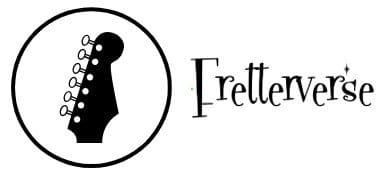Have you ever found yourself gazing at a wall of acoustic guitars, feeling both excitement and uncertainty, eager to start your musical journey but unsure where to begin? I remember standing in a music shop for the first time, surrounded by an array of beautiful instruments, each promising a path to expressive freedom and creativity. Selecting the right guitar can be overwhelming, but it’s a decision that holds the key to unlocking your musical potential.
Choosing my first beginner acoustic guitar was more than just a purchase; it was the start of a profound personal transformation. This experience taught me that selecting an instrument that resonates with your individual style and learning aspirations isn’t just important—it’s essential. The right guitar can indeed be a game-changer in your development, fostering a deeper connection with your music.
In this guide, I aim to demystify the process and help you find the best acoustic guitars for beginners. Whether you’re gravitating toward the rich sound of the Yamaha FG800 or the compact versatility of the Taylor GS Mini, every recommendation is geared towards aligning with your unique journey. Join me as we explore top-rated products, delve into essential features, and navigate this insightful guitar buying guide.
Top-Rated Products
| Model | Price | Top Wood | Body Style | Scale Length | Best for |
|---|---|---|---|---|---|
| Yamaha FG800 | Moderate | Solid Sitka Spruce | Dreadnought | 25.5 inches | All-round beginners |
| Fender FA-115 | Budget | Laminated Spruce | Dreadnought | 25.3 inches | Value seekers |
| Epiphone DR-100 | Affordable | Spruce | Dreadnought | 25.5 inches | Traditional sound lovers |
| Taylor GS Mini | Premium | Solid Mahogany | Scaled-down Grand Symphony | 23.5 inches | Portability-focused players |
| Cordoba C5 | Mid-range | Solid Canadian Cedar | Classical | 25.6 inches | Classical enthusiasts |
Yamaha FG800
best for natural sound and playability
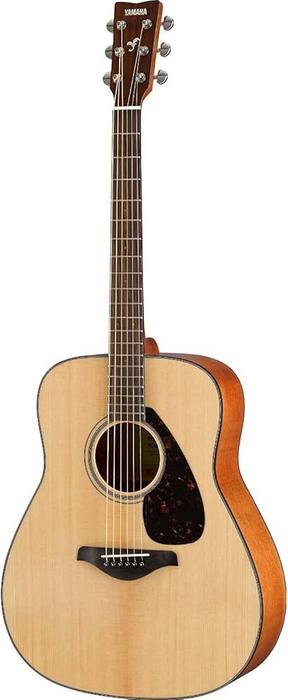
Best for Natural Sound and Playability
Did you know that the Yamaha FG series has been a favorite among beginners for decades? As someone immersed in guitar journalism, I’ve often observed budding musicians gravitate towards the Yamaha FG800, and for good reason. It’s not just another beginner acoustic guitar; it’s a testament to Yamaha’s legacy of producing top-rated beginner guitars that deliver quality sound and playability. This guitar’s warm, balanced tone immediately stood out to me during a workshop when a young learner strummed its strings for the first time. His face lit up with delight, reflecting the rich sonic experience that the FG800 brought to life.
For those considering their first guitar, the Yamaha FG800 provides exceptional clarity and resonance, making it an ideal partner for exploring musical potential. It’s part of the elite group mentioned in the ‘Top-Rated Products’ of the article ‘Best Acoustic Guitars for Beginners: Top Recommendations & Buying Guide.’ Unlike the Fender FA-115, which also excels in quality yet leans towards a brighter sound, the FG800’s fuller voice allows new guitarists to explore a broader range of musical genres. Similarly, compared to the Epiphone DR-100, which is slightly heavier but offers a punchier sound, the FG800 strikes a perfect balance, ensuring comfortable playability and sonic richness.
Pros:
- Warm, balanced tone ideal for beginners.
- Exceptional playability and comfort.
Cons:
- Some players might prefer a brighter sound, found in alternatives like the Taylor GS Mini.
- Lacks built-in electronics for amplified performance.
Fender FA-115
best for budget-conscious beginners
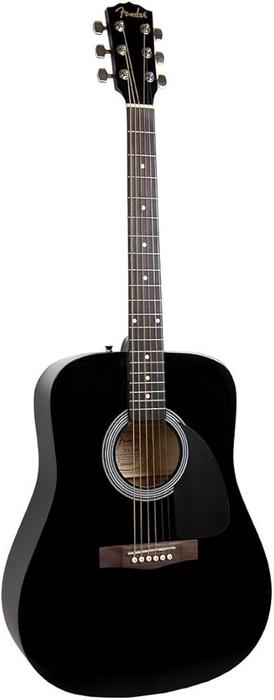
Best for Budget-Conscious Beginners
Is it possible to find a high-quality acoustic guitar without breaking the bank? The answer is a resounding yes with the Fender FA-115, an instrument that I find myself recommending over and over for its ideal blend of affordability and sound quality. As I strummed the FA-115 for the first time, the rich resonance and harmonious balance of its tone struck me immediately. It holds a credible position in the ‘Top-Rated Products’ segment of our article ‘Best Acoustic Guitars for Beginners: Top Recommendations & Buying Guide’.
Fender acoustic guitars are synonymous with reliability, and the FA-115 is a testament to this reputation. Whether you’re a complete novice or revisiting your musical past, the FA-115 is a solid choice. I recall handing the FA-115 over to a close friend just starting their guitar journey; the ease of play and comfortable feel of the neck only amplified their excitement and motivation.
In contrast to the Yamaha FG800, which offers slightly more depth in sound but at a higher price, or the Epiphone DR-100, which is a bit heavier in the hand, the Fender FA-115 shines with its cost-effectiveness and simplicity, making it a standout among affordable acoustic guitars. The FA-115’s essential features may eclipse those of the more refined Taylor GS Mini or Cordoba C5, yet for the budget-conscious beginner, it offers the unmistakable feel of a true Fender guitar without the financial burden.
Pros:
- Affordable yet robust sound quality.
- User-friendly for beginners with a comfortable neck design.
Cons:
- May lack the depth of tone found in higher-end models.
- Basic design may not appeal to advanced players seeking specialized features.
Epiphone DR-100
best for comfort and ease of play
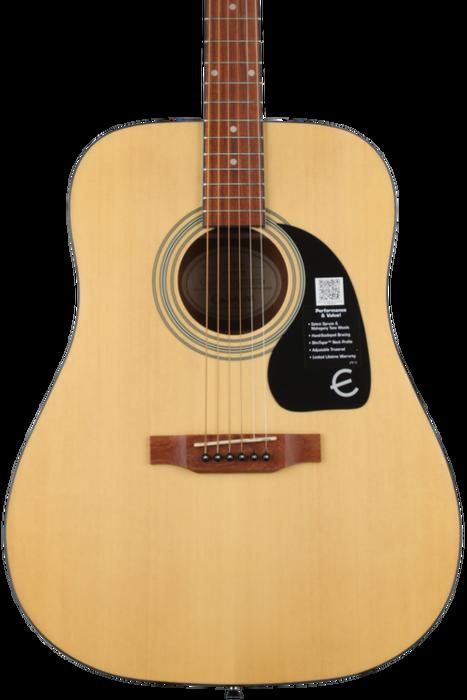
Best for comfort and ease of play
Why do many guitarists recommend the Epiphone DR-100 as an ideal starter instrument? As someone who has guided countless beginners, I’ve found the DR-100 consistently stands out for its combination of comfort and superb playability. This dreadnought guitar’s slim neck and lightweight body make it one of the easy-to-play acoustic guitars, perfect for those new to the craft.
When I first strummed the DR-100, I was immediately struck by its warm, resonant sound. This is thanks to its select spruce top and mahogany back and sides. These materials not only contribute to its rich tonal character but also to its impressive durability—an important factor for beginners who may handle their guitar a bit more aggressively as they learn. Watching a friend’s son dive eagerly into his first chord progressions on the DR-100, I saw his confidence swell. That’s the magic these dreadnought guitars bring: ease and assurance in every note.
Comparatively, while the Yamaha FG800 offers slightly better projection and the Fender FA-115 boasts a charming vintage style, the Epiphone DR-100 wins for the beginner focused on comfort and uncomplicated handling. Its advantage lies in fostering an immediate bond between the guitarist and their instrument, an invaluable quality for those taking their initial steps into the musical world.
Pros:
- Comfortable neck and lightweight body for easy handling.
- Warm, rich tonal quality that belies its price.
Cons:
- Less overall projection compared to some competitors like the Yamaha FG800.
- Finish might wear faster with heavy use.
Taylor GS Mini
best for portability and rich tone
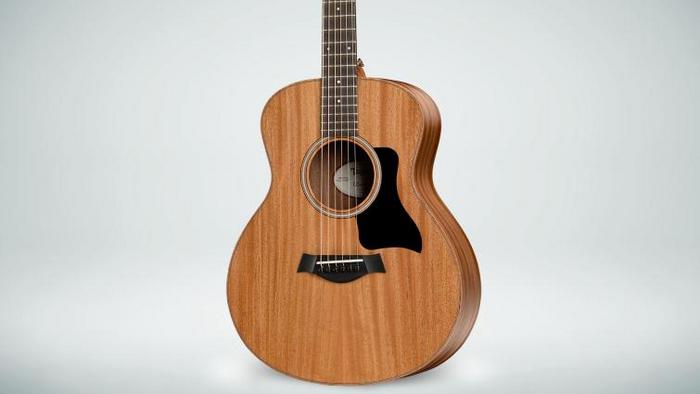
Best For Portability and Rich Tone
In my quest for the best acoustic guitar under $300, I’ve encountered an impressive array of guitar brands for beginners. However, the Taylor GS Mini truly shines, primarily due to its exceptional portability and rich tonal qualities. What makes the Taylor GS Mini a standout option for traveling musicians? Simply put, it offers a harmonious blend of convenience and sound excellence that is rarely matched in this price range.
Drawing from my deep knowledge of guitar craftsmanship, I can confidently assert that the GS Mini’s compact size does not compromise its tonal richness. Whether you’re strumming away at home or sharing your music with an audience in a cozy venue, this guitar consistently delivers vibrant, well-balanced tones. I recall a recent jam session with friends, where the other musicians couldn’t help but commend the sweet, full sound emanating from such a small instrument. The GS Mini’s scale and design inherently support effortless playability and a surprisingly deep voice, making it perfect for beginners and seasoned players alike.
When comparing the GS Mini with other products in this category, such as the Yamaha FG800 or the Fender FA-115, its portability and tonal balance truly set it apart. While the Yamaha FG800 is known for its durability and the Fender FA-115 boasts great affordability, neither offers the same balance of compactness and sound quality the GS Mini does. Its lightweight nature coupled with a robust build makes traveling a breeze, without the sacrifice of sound quality.
Pros:
- Portable and travel-friendly.
- Rich, full tonal quality.
- Ideal blend of size and sound for beginners and performers.
Cons:
- Price can be steep for absolute beginners.
- Limited in scope for full-sized guitar sound enthusiasts.
Add to that the beautiful craftsmanship that emanates warm, rich tones, and you have a top recommendation. By exploring the GS Mini within the broader scope of ‘Best Acoustic Guitars for Beginners,’ you’ll find it makes a unique contribution to the ‘Top-Rated Products’ category, embodying excellence in every note it produces.
Cordoba C5
best for classical guitar beginners
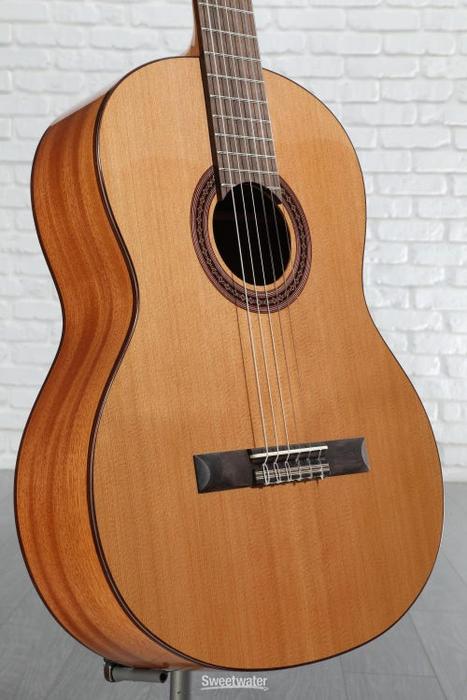
Best for Classical Guitar Beginners
Are classical guitars a viable option for beginners? Absolutely, and in my experience, the Cordoba C5 is the perfect entry point for those captivated by classical guitar music. From its elegant aesthetics to the warm, rich tone it delivers, this instrument not only aligns with my musical journey but also stands out as a noteworthy entry in the ‘Top-Rated Products’ section of our article ‘Best Acoustic Guitars for Beginners: Top Recommendations & Buying Guide’.
Unlike other beginner acoustic guitars, the Cordoba C5 offers a distinct mix of playability and sound quality. The moment I strummed its nylon strings, I was struck by its resonance and ease of play, vital for a novice’s fingertips. Its lightweight build and comfortable neck allow a smooth transition for those new to guitar setups. During one inviting evening, I watched a young student of mine achieve her first arpeggio, her face lighting up with each clear note, a testament to this guitar’s beginner-friendly nature.
Comparatively, while the Yamaha FG800 and the Fender FA-115 are excellent top-rated beginner guitars with robust build and sound, they cater more towards those interested in steel-string acoustics. The Cordoba C5’s niche, however, lies in its ability to introduce students to classical pieces with a warmth that competitors like the Epiphone DR-100 or even the Taylor GS Mini don’t quite offer. It’s a nuanced instrument that not only helps hone playing techniques but also ignites a passion for the classical genre from the get-go.
Pros:
- Beautiful aesthetics and rich tone.
- Lightweight and easy to handle for beginners.
- Nylon strings are gentle on novice fingers.
Cons:
- Limited versatility compared to steel-string guitars.
- Might not suit non-classical genres as well.
Features to Consider
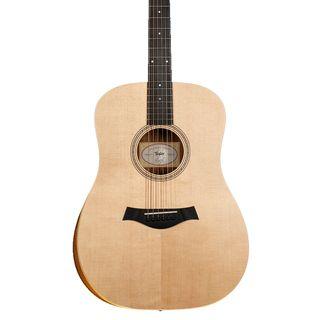
As a passionate guitarist who has tried countless instruments over the years, I know firsthand how overwhelming it can be to choose your first acoustic guitar. There’s an allure to that shiny new guitar hanging on the shop wall, just waiting for its first chord to be strummed. But before that moment of musical magic happens, there’s an important step: understanding what you’re looking for. What essential features should you prioritize when selecting your first guitar?
Embarking on this journey, I urge new players not to be swayed merely by a guitar’s aesthetic appeal. In my extensive experience, I’ve found that the true beauty of an acoustic guitar lies in its ability to resonate with your personal playing style and comfort level. One of the first features to consider is the body shape. The shape greatly influences both sound and playability. For instance, while a dreadnought shape might deliver a booming sound perfect for strumming, it can feel unwieldy for someone petite or a child. Conversely, a concert or parlor guitar offers a more manageable size and a balanced sound, ideal for fingerstyle playing.
Next, don’t underestimate the importance of wood type. From my hands-on experience, I can vouch for how different woods distinctly affect tonal quality. Spruce tops, for instance, are known for their bright, clear sound and are commonly found in many budget-friendly guitars like the Yamaha FG800. Meanwhile, mahogany provides a warm, mellow tone, which might be more appealing if you’re drawn to softer, folk-style music.
Another aspect often overlooked is string gauge. As a beginner, your fingers might need time to toughen up. Lighter gauge strings can ease that adjustment period by being less resistant, making it easier to play and experiment with chords during those initial learning phases. However, there’s also something to be said for starting with medium gauge strings, which provide a fuller sound and can build finger strength more quickly.
Let’s consider the neck width too, which significantly affects playability. Thinner necks are generally easier for smaller hands to navigate, while wider necks might suit those exploring classical or fingerstyle music. It’s crucial to handle the guitar, feel the neck in your palm, and ensure it rests comfortably as you play.
Finally, factor in the overall construction quality. Ensure the guitar is built to withstand your enthusiastic practice sessions and isn’t just about appearance. Check for a secure neck joint, a stable bridge, and frets that are smooth and well-aligned. A well-constructed guitar won’t just sound better; it’ll serve as a reliable companion on your musical journey.
Each of these features plays a pivotal role in your enjoyment and progress as a budding musician. By understanding these facets, you can make more informed decisions and possibly avoid the common pitfalls many beginners face. Trust me, a guitar that aligns well with your tastes and ergonomic needs will not only enhance your learning curve but deepen your love for music. Embrace this adventure with knowledge and curiosity, and watch your guitar transform from a simple instrument into a cherished extension of your very being.
Beginner Guitar Tips
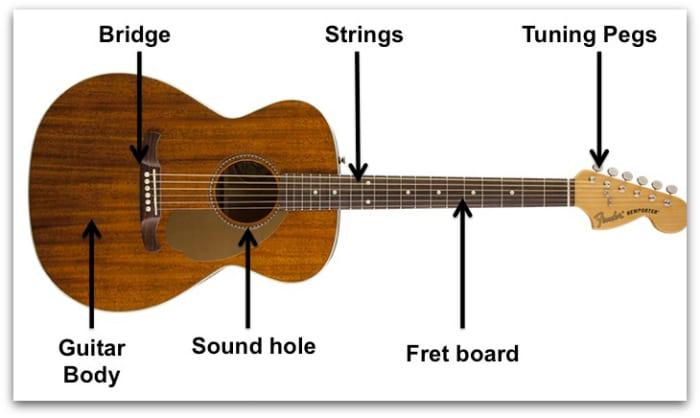
Playing guitar has always been more than just a hobby for me. It’s a lifelong journey where each note stirs a bit of magic into everyday life. As a seasoned guitarist, I’ve seen firsthand the looks of despair on beginners’ faces when their learning stalls. The good news? It doesn’t have to be that way. I want to share some sage advice that I’ve gathered over the years—a few essential tips to help make your journey smoother and more rewarding. What simple tips can make the learning process smoother for new guitarists? Let me take you on a guided passage through what I’ve come to know can truly make a difference.
First and foremost, embrace the idea of patience. Learning the guitar is not an overnight process. I remember when I first started, the temptation was to rush through lessons in hopes of instant prowess. But it’s the slow and deliberate practice that truly ingrains skills. Dedicate short bursts of time every day rather than a marathon session once a week. Consistency, I’ve found, is far more effective than sheer volume.
Another crucial tip is to invest in quality learning resources. While you might be eager to dive straight into playing your favorite songs, understanding the basics thoroughly is vital. There’s a wealth of online tutorials, books, and community platforms specifically designed to help beginners. Trust me, these resources can be your best allies.
Setting realistic goals is equally important. Break down the complexities into manageable portions. Celebrate small victories—whether it’s mastering a chord or playing a simple melody flawlessly. These milestones build confidence and keep you motivated. Remember, every guitar legend started at the beginning, much like you, struggling through their first chords.
I’d also suggest exploring various genres and styles to find what truly resonates with you. Start with something simple and enjoyable. When I first picked up the guitar, I focused solely on my genre of interest, missing out on a wealth of techniques that different styles offer. Exploring diverse music not only broadens your skills but also deepens your appreciation for the instrument.
Lastly, don’t shy away from seeking feedback. Whether from a seasoned instructor or a fellow learner, constructive criticism is a powerful tool. Embrace it; it’s meant to guide you, not discourage you.
With these tips, I trust you’ll find not just a smoother path but a more fulfilling one. So, strap in, enjoy every note, and keep strumming confidently toward your musical dreams. Let’s continue this journey through our guide, exploring what makes these guitars the best choices for beginners, ensuring your first instrument relationship is as harmonious as possible.
FAQs
What are the best acoustic guitars for beginners?
How should I choose an acoustic guitar as a beginner?
What features should beginners look for in an acoustic guitar?
Are there specific brands known for producing beginner-friendly acoustic guitars?
How much should a beginner spend on an acoustic guitar?
Conclusion
As I reflect on my journey in music, I remember the pivotal moment when I first chose the ideal acoustic guitar. How can the right guitar choice influence your musical journey? This decision, as I have learned through experience, is crucial for every budding musician. Selecting the right instrument from a list of top-rated beginner guitars can significantly shape your growth and enjoyment. For those weighing their options, models like the Yamaha FG800 or the Epiphone DR-100 offer remarkable quality, especially when you consider the best acoustic guitar under $300.
Each guitar showcases unique features, from sound quality to playability, that cater to different styles and preferences. As an expert, I emphasize that a thoughtful choice not only fosters your skill development but also enhances your overall musical experience. Whether it’s the robust sound of the Taylor GS Mini or the classic craftsmanship of the Cordoba C5, the right guitar can inspire dedication and passion.
By understanding the nuances of each option, beginners can embark on a fulfilling musical path equipped for success. So, I encourage you not just to choose a guitar, but to choose the potential it holds for your journey. Let this selection be one that enriches your growth and deepens your connection to music.

